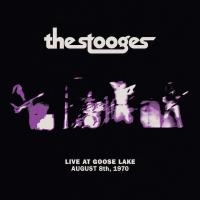In August, 1970 I was 20-years old and home for the Summer from my college not far from Jackson, MI. Home was in northeastern Ohio and it was time to go back to school. So, a friend and I started out on August 6th for the Jackson area.
Every gas stop along the way we encountered all manor of grooved out kids with backpacks, dogs, sleeping bags and typical "hippie" attire. We knew nothing of the Goose Lake festival but after seeing more and more hitchhikers with "Goose Lake" signs we got the gist. I had room in the car for 3 hitchhikers but we ended up with 5 additional riders. As you can imagine there were good vibes all around and what seemed like a million young people walking, hitching and jumping into the back of pickup trucks.
We dropped off our new found friends as close as we could to the entrance of the festival, which wasn't all that close due to the massive crowd.
I often think how wrong I was to not follow all these folks and enjoy all that a 1970's music festival had to offer. Even after 50-years missed opportunities are a drag.








